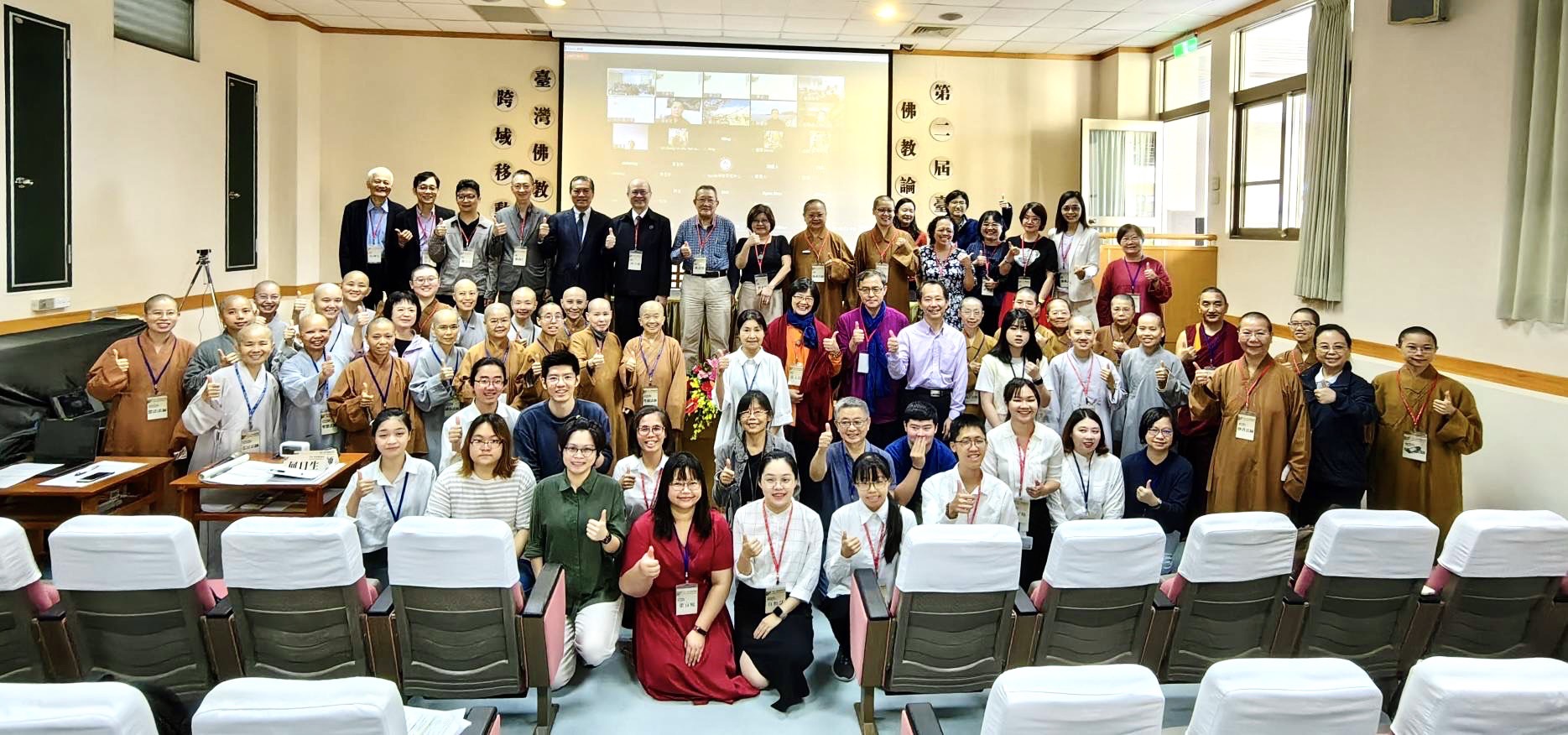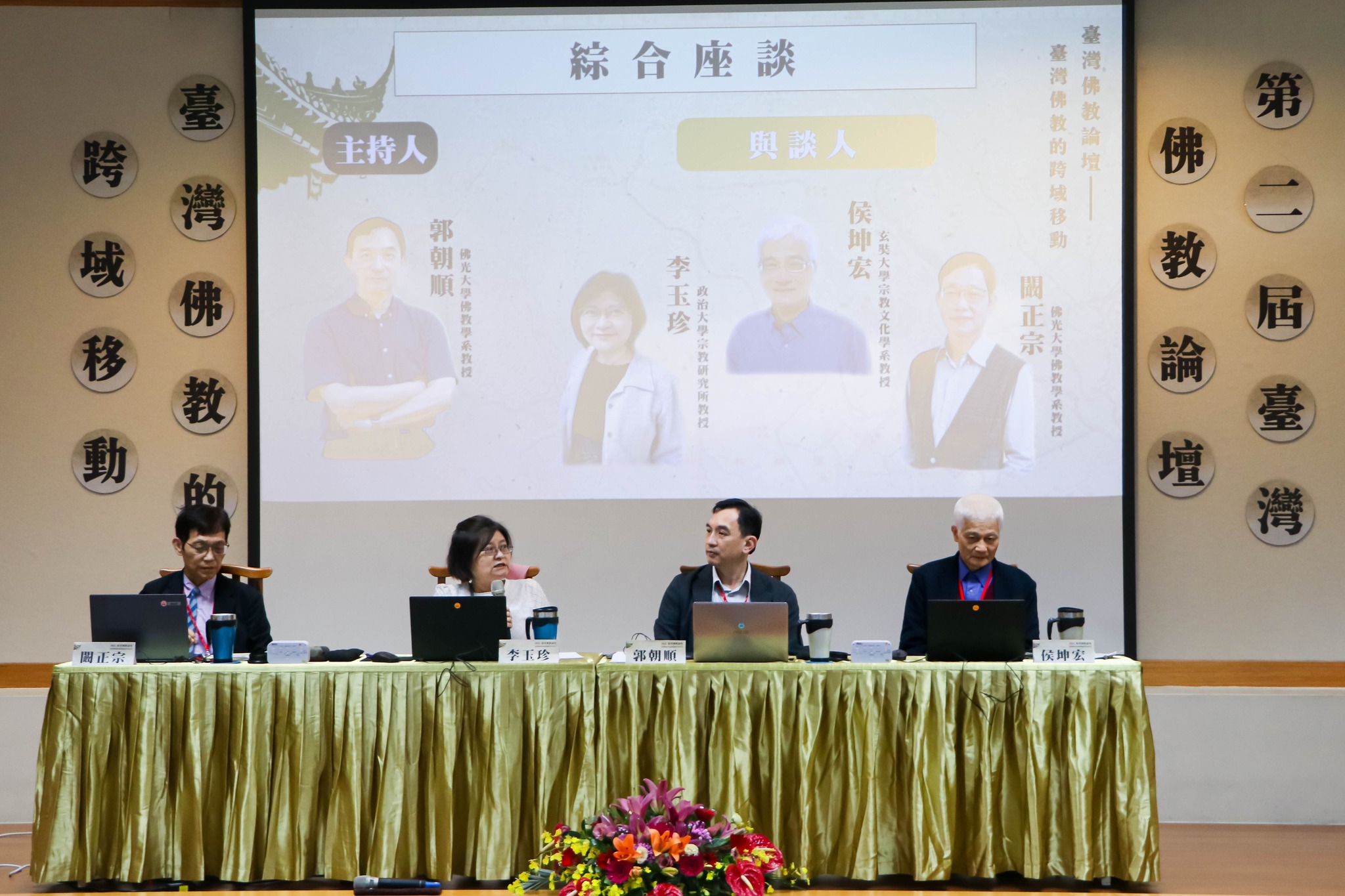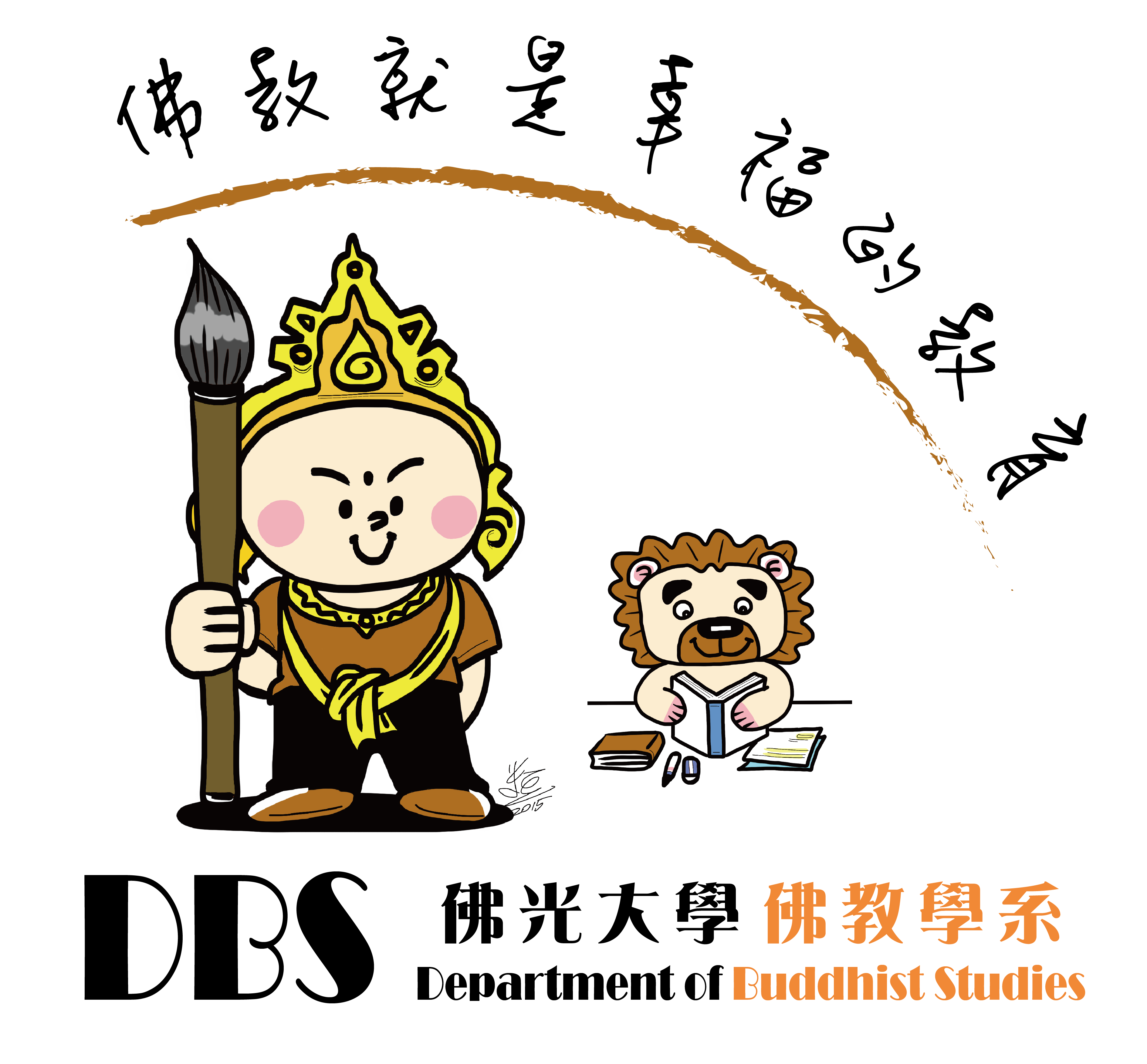 Sponsored by the Center for Buddhist Studies at Fo Guang University, the Institute of Religious Studies at National Chengchi University, the Department of Buddhist Studies at Fo Guang University, the Institute of Humanistic Buddhism Research at Fo Guang Shan, and the Fo Guang Shan Cultural and Educational Foundation, the "Second Forum of Taiwan Buddhism: the border-crossing movement of Taiwan Buddhism" took place at the Yunshui Building of Fo Guang University from November 3rd to 4th, 2023. The event brought together over 100 scholars and students from institutions such as Dharma Drum College of Arts and Sciences, Hsuan Chung University, Tzu Chi University, Yuanguang Buddhist College, and others. Additionally, more than 60 participants joined the discussions online from mainland China, Malaysia, Indonesia, Vietnam, Australia, and the United States, contributing to the vibrant exchange of ideas during the event.
Sponsored by the Center for Buddhist Studies at Fo Guang University, the Institute of Religious Studies at National Chengchi University, the Department of Buddhist Studies at Fo Guang University, the Institute of Humanistic Buddhism Research at Fo Guang Shan, and the Fo Guang Shan Cultural and Educational Foundation, the "Second Forum of Taiwan Buddhism: the border-crossing movement of Taiwan Buddhism" took place at the Yunshui Building of Fo Guang University from November 3rd to 4th, 2023. The event brought together over 100 scholars and students from institutions such as Dharma Drum College of Arts and Sciences, Hsuan Chung University, Tzu Chi University, Yuanguang Buddhist College, and others. Additionally, more than 60 participants joined the discussions online from mainland China, Malaysia, Indonesia, Vietnam, Australia, and the United States, contributing to the vibrant exchange of ideas during the event.Prof. Jow-Fei Ho, the President of Fo Guang University, added that Taiwan's Buddhism is characterized by its vibrancy and vitality. This vitality stems from the dynamic fusion and integration of various cultural, religious, and artistic influences from different regional ethnic groups. Through the academic discussions held at this forum, the multifaceted essence of Taiwanese Buddhism will be vividly showcased.
Professor Chin-Chuan Wan, the Director of the Center for Buddhist Studies, highlighted that the research center, generously supported by the Fo Guang Shan, functions as a dedicated platform for researches in Buddhist Studies, with a particular focus on advancing studies pertaining to Chinese Buddhism. The practical journey of Taiwan Buddhism in spreading its teachings beyond its borders is a testament to its ability to transcend not only geographical boundaries but also linguistic and cultural ones. It continually assimilates knowledge and flourishes through constant adaptation and mobility. Indeed, the history of Buddhism is intricately intertwined with the journeys of Buddhist monks and their cross-regional movements, making it a topic of great significance and deserving of extensive examination and discussion.
Professor Yuchen Li, the Director of the Institute of Religious Studies at National Chengchi University, noted that the inaugural Forum of Taiwan Buddhism took place as an online conference at Tzu Chi University in 2022, where participating scholars engaged in discussions centered around the theme of "Buddhism's Transnational Development," sparking significant interest and dialogue. In this second iteration of the forum, which focuses on border-crossing movement of Taiwanese Buddhists, the objective is to explore the distinctive characteristics of Taiwan Buddhism that transcend race, culture, and national boundaries. The hope is that these discussions will pave the way for ongoing discourse in the future.
Taiwan, situated at the crossroads of East Asia's transportation networks, has a historical record of continuously assimilating influences from various foreign cultures and religions. This rich history has contributed to the development of Taiwan's vibrant and distinctive social fabric.
The scope of this forum is expansive, encompassing a wide array of topics related to border-crossing mobility. It encompasses a historical perspective, beginning with the introduction of Buddhism to Taiwan during the Qing Dynasty. It extends to contemporary developments, such as the emergence of Myanmar meditation groups in Taiwan in recent years, as well as the strategies and challenges faced by Taiwanese Buddhists in its global outreach efforts in modern times. These discussions shed light on the extensive field of Taiwanese Buddhist activities and their far-reaching impact. These activities transcend geographical confines, extending beyond East Asia, and go beyond the realm of religious spirituality alone. For instance, one can observe the dynamic and engaging Dharma promotion initiatives undertaken by Fo Guang Shan in Europe and America, as well as the global charitable activities of Tzu Chi practitioners, who traverse the world to offer assistance. Additionally, there is the commitment of Dharma Drum Mountain to prioritize and promote education and scholarly endeavors.
 On the second day, the conluding plenary session was facilitated by Professor Chao-Shun Kuo, the Dean of the College of Buddhist Studies at Fo Guang University. Joining the discussion were Professor Yuchen Li, Professor Kunhong Hou from the Department of Religion and Culture at Hsuan Chung University, and Professor Cheng-tsung Kan from the Department of Buddhist Studies at Fo Guang University. They delved into the challenging questions of how to define "Taiwan Buddhism" and establish "Taiwanese subjectivity" within the context of the "border-crossing movement." They also explored the boundaries of "Buddhism" itself, contemplating the positioning of core and peripheral aspects within its scope when visualizing concentric circles. Each research method was acknowledged to have its inherent limitations, highlighting that no single research approach is flawless. They collectively reflected on the significance of this forum in fostering the publication of papers related to the history of Taiwan Buddhist thought and philosophy.
On the second day, the conluding plenary session was facilitated by Professor Chao-Shun Kuo, the Dean of the College of Buddhist Studies at Fo Guang University. Joining the discussion were Professor Yuchen Li, Professor Kunhong Hou from the Department of Religion and Culture at Hsuan Chung University, and Professor Cheng-tsung Kan from the Department of Buddhist Studies at Fo Guang University. They delved into the challenging questions of how to define "Taiwan Buddhism" and establish "Taiwanese subjectivity" within the context of the "border-crossing movement." They also explored the boundaries of "Buddhism" itself, contemplating the positioning of core and peripheral aspects within its scope when visualizing concentric circles. Each research method was acknowledged to have its inherent limitations, highlighting that no single research approach is flawless. They collectively reflected on the significance of this forum in fostering the publication of papers related to the history of Taiwan Buddhist thought and philosophy.As the forum drew to a close, the baton was passed to the Department of Religious and Cultural Studies at Hsuan Chuang University, which is set to organize the Third Forum of Taiwan Buddhism. Participants and attendees alike anticipate that the next forum will continue to expand on the rich dialogue and exchange of ideas that have characterized these events.

 College and Department of Buddhist Studies, FGU
College and Department of Buddhist Studies, FGU